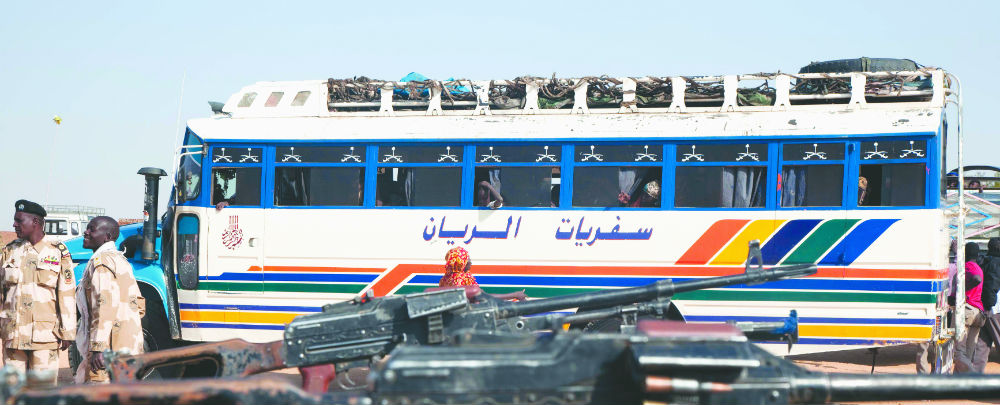

Recent years have seen record numbers of Africans forcibly displaced from their homes. The most recent figure of 25 million people displaced is a 500-percent increase from 2005. While much attention focuses on economic migrants who are trying to cross into Europe, 95 percent of those who are displaced remain on the continent. Two-thirds of these are displaced within their home countries. In short, the reality faced is more accurately characterized as an African displacement, rather than a European migrant, crisis.
This paper explores the drivers of population displacement in Africa, security ramifications, and priorities for reversing this destabilizing trend.
Conflict and repressive governance are the two main drivers of displacement in Africa.
› The 13 African countries facing armed conflict account for almost 90 percent of the 25 million people displaced. The regional concentration of these conflicts means that those seeking refuge in neighboring countries face other dangers. Even though more than 4.1 million people have been displaced by the conflict in South Sudan, the country still hosts nearly 300,000 refugees fleeing neighboring countries.
› Of the 10 African countries with the greatest number of people displaced, 9 have authoritarian-leaning governments. Seventy-five percent of African countries facing armed conflict, similarly, have repressive governments. The lack of political space and the inequitable enforcement of the rule of law, therefore, are at the heart of much of Africa’s population movements.
The displacement crisis has direct implications on security.
› The growing numbers of economic migrants and forcibly displaced have created a lucrative market for human smuggling—estimated to be worth $765 million annually along the Trans-Sahara route. A significant share of this flows to violent extremist and criminal groups, who use the funds to undermine and destabilize governments.
› Communities that host displaced populations face enormous economic, environmental, and social strains. Northern Uganda, home to 1.9 million people, absorbed more than 1 million South Sudanese refugees in 2018. As resources are stretched, the risk of instability in Uganda, which has its own history of strife, increases.
The drivers of this crisis, not just the symptoms, need to be addressed if the trend is to be reversed.


